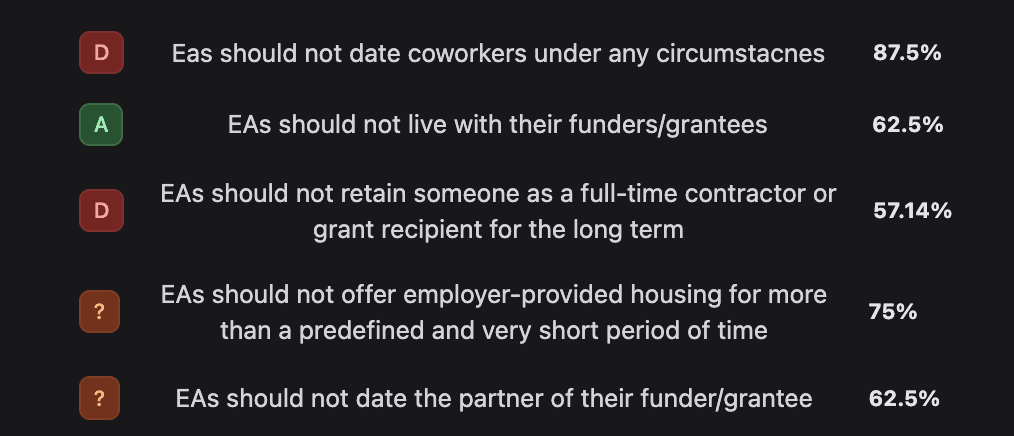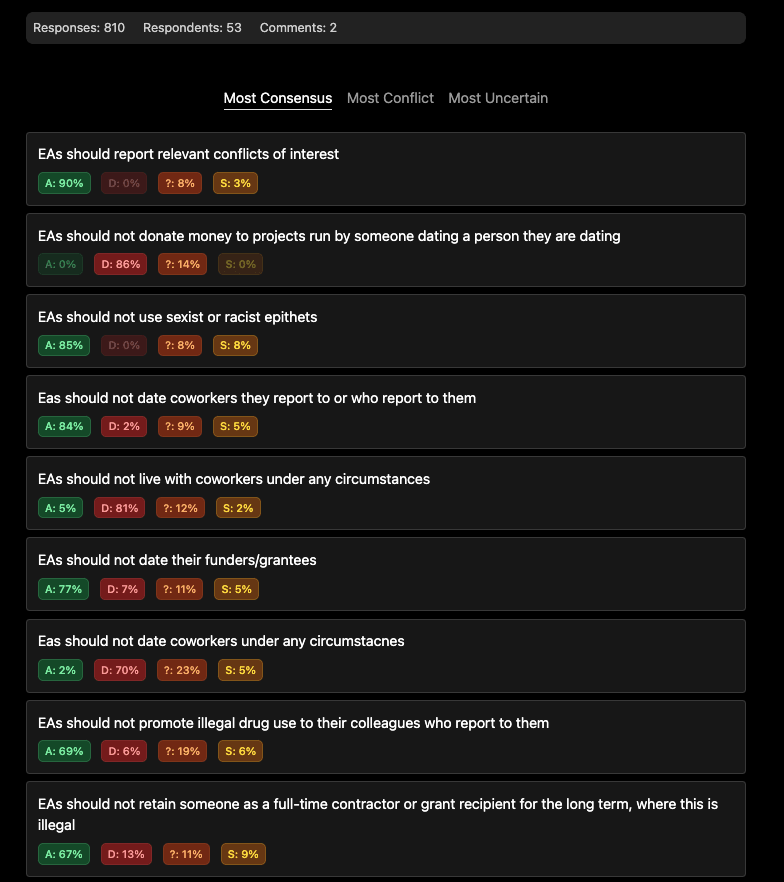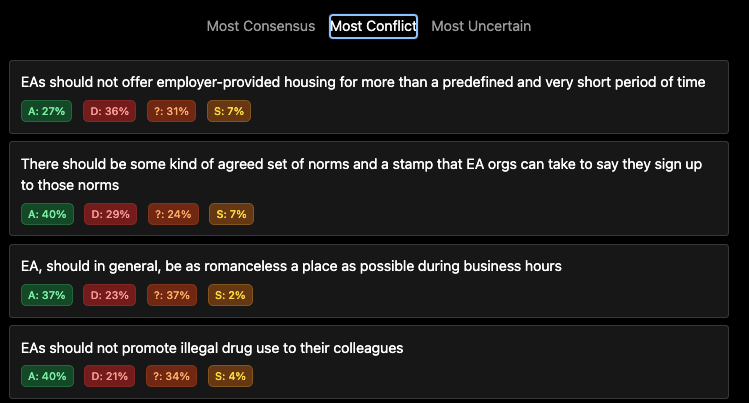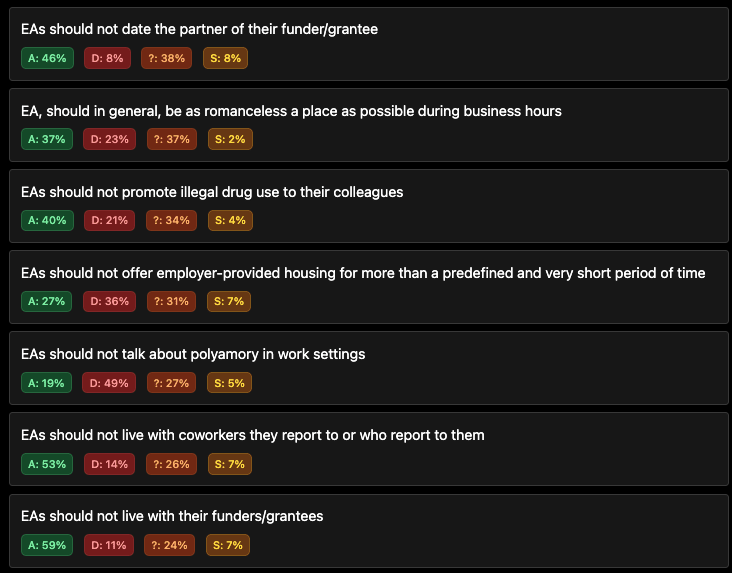There has already been ample discussion of what norms and taboos should exist in the EA community, especially over the past ten months. Below, I'm sharing an incomplete list of actions and dynamics I would strongly encourage EAs and EA organizations to either strictly avoid or treat as warranting a serious—and possibly ongoing—risk analysis.
I believe there is a reasonable risk should EAs:
- Live with coworkers, especially when there is a power differential and especially when there is a direct report relationship
- Date coworkers, especially when there is a power differential and especially when there is a direct report relationship
- Promote[1] drug use among coworkers, including legal drugs, and including alcohol and stimulants
- Live with their funders/grantees, especially when substantial conflict-of-interest mechanisms are not active
- Date their funders/grantees, especially when substantial conflict-of-interest mechanisms are not active
- Date the partner of their funder/grantee, especially when substantial conflict-of-interest mechanisms are not active
- Retain someone as a full-time contractor or grant recipient for the long term, especially when it might not adhere to legal guidelines
- Offer employer-provided housing for more than a predefined and very short period of time, thereby making an employee’s housing dependent on their continued employment and allowing an employer access to an employee’s personal living space
Potentially more controversial, two aspects of the community I believe have substantial downsides that the community has insufficiently discussed or addressed:
- EA™ Group Houses and the branding of private, personal spaces as “EA”
- "Work trials" that require interruption of regular employment to complete, such that those currently employed full-time must leave their existing job to be considered for a prospective job
As said, this list is far from complete and I imagine people may disagree with portions of it. I’m hoping to stake this as a position held by some EAs and I’m hoping this post can serve as a prompt for further discussion and assessment.
- ^
“Promote” is an ambiguous term here. I think this is true to life in that one person’s enthusiastic endorsement of a drug is another person’s peer pressure.








To respond to the other points:
I'm glad this went well for LessWrong! Sometimes, however, people discover their beloved roommate is a very bad coworker and it leads to a major blowup. I think this should be treated similarly to family business ventures: you and your brother or you and your spouse might work phenomenally together professionally, or it might destroy your family and end your marriage.
Another important distinction here might be the difference between a stable living situation predating a new shared project vs. an existing organization's staff deciding to live together or pressuring new employees to live with other employees.
Either way, I think there is a risk that a discussion about an important campaign strategy turns into an argument about whose turn it is to wash the dishes.
I previously worked in a professional space where living onsite was an extremely common part of the job. Sometimes, it was great! Other times, it was horrible! Among the issues: hesitation to quit because it would mean lost housing, difficulty establishing work-life balance, invasion of privacy, decreased sense of agency and increased sense of reliance on and control by the employer, and many more.
I think this is a weird one for an employer/organization to try to enforce. But I think on an individual level thinking "how important is it for me to date this person my partner directly funds?" or "maybe my coworker should review my metamour's grant application instead of me" makes a lot of sense.